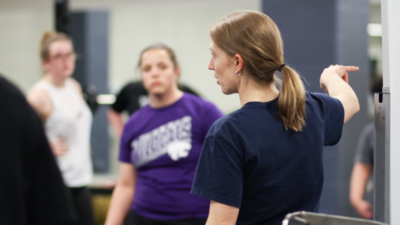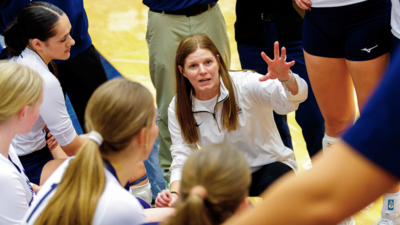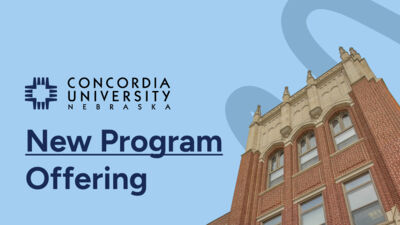Career Spotlight: Occupational and Physical Therapy

It is likely that you have heard of or know people who work in the fields of physical or occupational therapy. Chances are, you have even worked with one of these professionals yourself, especially if you’ve experienced a significant injury at some point in your life.
If you are passionate about finding a career in a discipline that emphasizes direct interaction with patients, creating a supportive and encouraging environment and helping others to live their lives to the fullest, then working as a physical or occupational therapist might be right for you! At Concordia, future physical and occupational therapists can follow a specialized schedule of courses in pre-occupational therapy or pre-physical therapy that’s tailored toward general graduate school requirements.
First, however, students should understand that, although they have many similarities, occupational therapy and physical therapy are not the same. Instead, they are two unique career paths that work toward different goals and outcomes. Physical therapy aims to rehabilitate, reeducate and retrain after a person has experienced an injury. Its primary focus is the reattainment of a range of physical motion, usually in the gross motor realm. Occupational therapy, on the other hand, trains people – many of whom have disabilities or physical limitations – how to engage in everyday skills with some autonomy. They generally help clients improve their fine motor skills, cognitive functioning and even sensory processing.
Physical therapists may work with many different populations daily; many even specialize in areas like geriatrics, pediatrics, athletics or orthopedics. They may find employment in locations ranging from hospitals to outpatient clinics, nursing homes or schools. Physical therapists often work as members of patient care teams, which can include nurses, doctors, and social workers. Managing patient cases in conjunction with these other members is a crucial part of a physical therapist’s job. As part of their unique duties, however, physical therapists focus on evaluating patients’ physical functioning, designing and implementing individual care plans and choosing exercises and activities that will effectively improve patients’ physical functioning.
Occupational therapists can also work with a variety of populations, but many specialize in working with children or disabled adults. They work to make everyday tasks easier for people of many ages and abilities and can find employment in many of the same locations as physical therapists. They train their clients to perform everyday tasks with ease and may work with people who have behavioral or mental health issues, autism, developmental delays, cancer, cerebral palsy or other conditions. Unlike physical therapists, however, their duties may go beyond the physical realm; they may help people with perceptual skills or even cognition.
Both physical therapists and occupational therapists must hold a four-year bachelor’s degree. At Concordia, the pre-physical therapy and pre-occupational therapy programs can help students of any academic major to fulfill prerequisites for entrance into graduate school in one of the two fields. While many students in these programs choose to major in exercise science, public health or biology, no primary area of study is “off-limits,” due to the nature of pre-professional programs.
After college, future occupational and physical therapists must both pursue graduate school. For physical therapists, a three-year Doctor of Physical Therapy program is the required pathway. Occupational therapists must obtain a two- or three-year master’s degree. Both types of therapist must obtain licensure in the state where they wish to practice. The National Physical Therapy Examination and state-specific licensure requirements allow physical therapists to practice legally in a state. The National Board for Certification in Occupational Therapy test is the equivalent for occupational therapists.
Both OTs and PTs earn comparable salaries, at about $95,000 annually. Job growth is rapid; according to the Bureau of Labor Statistics, both careers are seeing growth that is classified as “much faster than average.” If you are a college student who’s interested in the duties of either a physical or occupational therapist, now is the time to pursue your passions in the field! From the flexibility in undergraduate coursework to the competitive salary and the depth with which you will be able to impact and improve the lives of others, the benefits of a career in one of these two areas are plentiful.
Interested in learning more about Concordia’s pre-physical therapy and pre-occupational therapy programs? Find information about pre-professional programs here.
Related Stories


